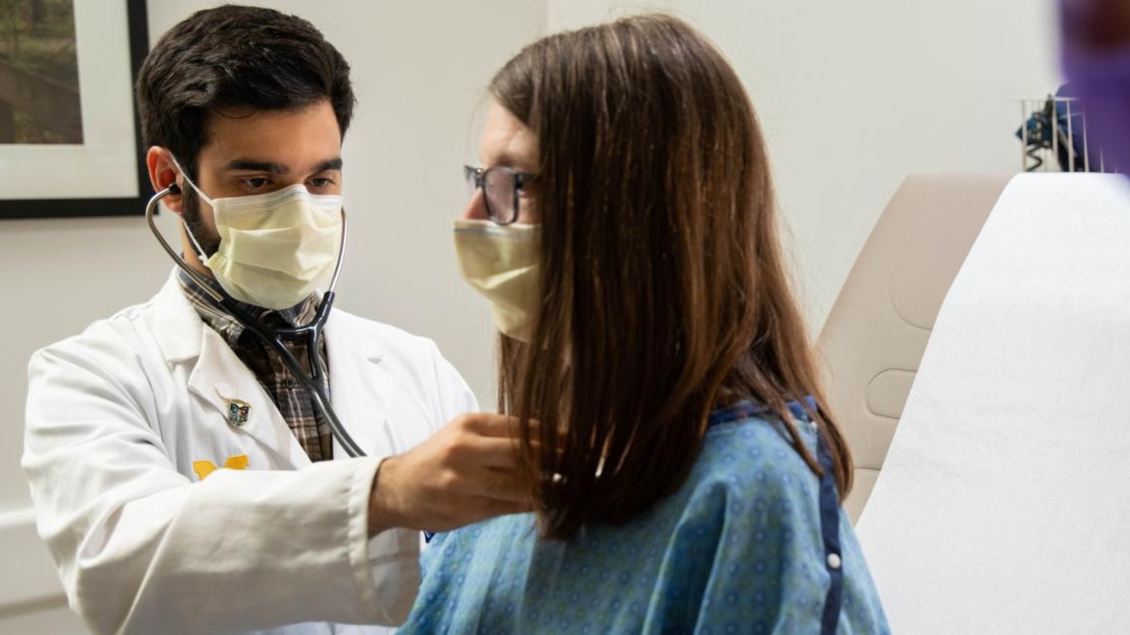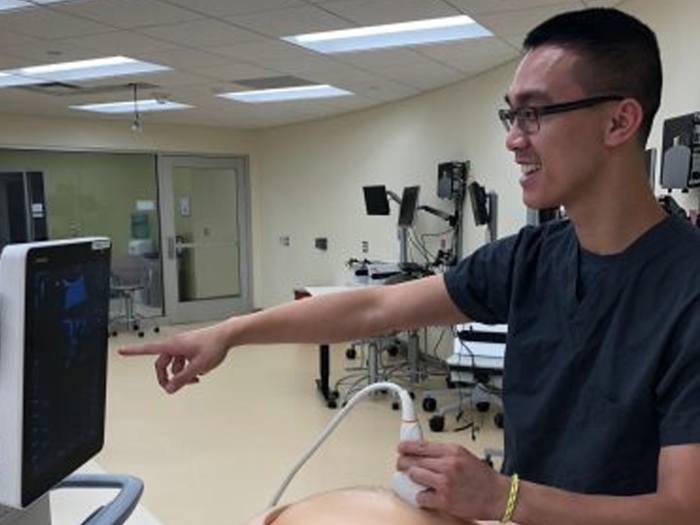
Head Start
Shadowing Interprofessional Sessions (SIPS) bring earlier patient interaction.
At Michigan, you will begin spending time in the clinical world earlier than in a traditional medical school curriculum. SIPS provides clinical exposure on a regular basis throughout the fall of M1 year with a focus on interprofessional, team-based care.
The goals of the SIPS are:
- Provide students an early introduction to various clinical settings across Michigan Medicine.
- Introduce students to the team-based aspect of the health care environment.
- Develop students' skills and awareness around respectful, appropriate and professional communication.
- Provide a clinical context to support learning from the Scientific Trunk and Doctoring Course.
SIPS kicks off with “Meet the Health Professionals,” a fun and interactive session in which students meet several different professions and learn about their roles and responsibilities. Based on this experience, students can provide preferences on the types of health care professionals they’d like to shadow in clinical settings.
From then on, your clinical experiences will take place in both inpatient and outpatient settings such as Emergency Medicine, C.S. Mott Children’s Hospital, University Hospital and several operating room experiences, to name a few.
Students will witness differing levels and aspects of team-based care, where the patient is a member of the team. The aim of these experiences is to provide a basis for training in patient care, a context for what is learned in the Doctoring course, and an introduction to higher level interprofessional experiences. After these sessions, students reflect on their experiences through writing a personal reflection. Later in the year, students observe and deconstruct interdisciplinary team rounds. Prior to starting core clinical rotations, students are able to understand the roles and responsibilities of their interprofessional colleagues and how these roles complement that of the physician.
Beginning medical education with SIPS provides a foundational experience not only in the growing emphasis on team-based care but also provides a context for understanding how care is provided. As students develop enhanced medical and clinical knowledge, their interprofessional experiences will evolve, allowing students to become active and collaborative members of the health care team.
The ability to shadow professionals in fields such as pharmaceuticals, physical therapy and dietetics was invaluable to my education as a future physician. It added to my real-world understanding of how we deliver health care to a patient and how that intertwines with the other vital components of a patient’s life, such as their medications, diet, daily routine, etc. The IPE Shadowing program makes us better future physicians by further connecting us with our team: the patients and the other professionals who play a crucial role in their care.
SIPS was formerly titled the Interprofessional Clinical Experience (ICE).

Dose of Reality blog by M1 Duyhoang